Day 211
4 hrs, 13
.8 kms
The idyllic emerald hills and wild shore abruptly comes to an end and the beginning of the Ksar Sghir projects begin--one of Morocco's most ambitious development projects in recent years. It starts out with a couple of small fishing ports built out into the sea. But it's just the beginning. The "real" port--now Africa's largest, is farther up ahead, a massive, very modern commercial port being built out into the sea right at the base of steep mountains.
I stopped by Ksar Sghir back in 2009 on my town hopping tour through this region and wasn't very impressed by the town--just a row of eateries an the side of a hill overlooking a small stream flowing into the sea. On the other side are the ruins of a little castle surrounded by a fence that hardly looks worth exploring.
But today, I'm going to explore a bit more. This is going to be my stopping point for the day, as it's my last chance for finding reliable transportation until Fnideq
. Since it's still early and I have a lot of time to kill, I figure I might as well go check out that castle. After a enjoy one of my favorite Moroccan specialties: a big dish of cow head.
Across the river, there's a cluster of scrappy houses, then a street, a plaza and a city hall being built. Clearly an attempt to turn Ksar Sghir into a "real" town rather than just a place Tangerians go to eat a meal and get out of the city.
Then there's the entrance to the castle complex, where I find a guard, fast asleep. Clearly there aren't a whole lot of people interested in visiting Ksar Sghir's castle. I wake him up, gladly pay the 10 dirham (1 euro) entrance fee. I balk a bit when he insists that I need a "guide"... but when the scrawny old guide shows up I feel sorry for the guy, realizing that I'm probably the only customer he's had all week... Oh, why not. One guided tour isn't going to kill me.
The castle, although not all that impressive visually, is actually a site of great importance
. Originally used by the Phoenicians, later the Romans, this was one of the launching off points of the Arab invasion into Spain. Later, in an odd twist in history, the Muslim Andalus kingdom tried to invade the Muslim Idrisid kingdom in Morocco.
Over the centuries, this continued to be a point of conflict. The Portuguese captured this spot and rebuit the castle and mini-city here, giving it a Portugues flair. When they left, they dumped sand and debris in the harbour, making it unusable for a long time. As a result Ksar Sghir lost its place as an important port... until today, with the largest port in Africa being built right next to it.
Then Moriscos
Later on, doing a bit more research online, wikipedia mentions that this was also a place where the Moriscos landed when they were driven out of Spain in the early 1600s. I'm a bit puzzled, as I thought that the Muslims and Jews had been driven out of Spain long before that. So I googled "Moriscos", and learned something I didn't know about Spanish/Moorish history
.
See, when Spain decided to drive out all the non-Christians from their country, many Muslims opted to convert to Christianity rather than be exiled from their homes. These people were called "Moriscos". They were the tradesmen and working class--playing an important part of the Spanish economy.
Then, some 150 years later, a Spanish king decided that these people were not "real" Christians and should be driven out. Some historians feel that this was just an excuse to plunder their lands and their goods, as Spain was having financial difficulty at that time. So, in a swift move, they were loaded onto ships only allowed to take what they could carry in their hands, and sent down to Ksar Sghir and other locations, to a land that was completely foreign to them.
According to some sources, the locals did not receive these refugees well, seeing them as competitors for land and resources. Eventually the Moriscos did get settled in here in northern Morocco
... re-converted to Islam and... well live here to this day. And many of them have all the physical traits of Spaniards, as they are in fact descendants of Iberians, not of Middle Eastern Arabs. This was not so much an "ethnic cleansing" that took place, rather they were targeted simply because they were an easy scapegoat for an over-zealous Christian Europe attempting to erase any traces of Islam in the continent.
To this day, there is a somewhat chilly relation with the Northern Moroccans and Central Moroccans, and I wonder if the reception they got 4 hundred years ago might have something to do with it.
I get to talking with a couple of of Moroccan fellows in Fnideq a the next day about this. They all look like Spainiards, speak Spanish, have visited or worked in Spain--and love Spanish rumbas and flamenco.
"We know about all the injustices that were done to us... But we don't feel any resentment towards Spain or anyone else
. Those things happened--but that's in the past. We want to focus on the present."
If only everyone in the world had that attitude.
Just over the last couple of years things have improved significantly on both sides of the Straits in this matter. On the Spanish side, they've finally acknowledged the injustice committed to the Moriscos--even considered to offer citizenship to their descendants (this proposal was dropped because it'd be to difficult to determine who is a Morisco and who isn't). On the Moroccan side, the country has invested heavily in this region--which had been previously largely ignored--turning it into a hotspot for tourism, commerce and industry.
But I still have to wonder if the concept of "homeland" and "national identity" for people in this region is still strongly affected by events that took place 400 years ago.
Post-visit: Ksar Sghir (0341) This Ancient Port
Wednesday, May 01, 2013
 Ksar es Sghir, Tanger-Tétouan, Morocco
Ksar es Sghir, Tanger-Tétouan, Morocco
Other Entries
-
1171504. Hike through Middle Earth
Mar 1943 days prior Fasaoun, Moroccophoto_camera25videocam 0comment 0
Fasaoun, Moroccophoto_camera25videocam 0comment 0 -
1181505. No food, no lodging
Mar 1943 days prior Tagadirt, Moroccophoto_camera8videocam 0comment 0
Tagadirt, Moroccophoto_camera8videocam 0comment 0 -
1191506. Berber-Rock Jam Session
Mar 2042 days prior Tanalt, Moroccophoto_camera12videocam 0comment 0
Tanalt, Moroccophoto_camera12videocam 0comment 0 -
1201507. Another Valley Civilization
Mar 2042 days prior Tissi, Moroccophoto_camera7videocam 0comment 0
Tissi, Moroccophoto_camera7videocam 0comment 0 -
1211508. Houses in the Clouds
Mar 2042 days prior Igherm, Moroccophoto_camera20videocam 0comment 0
Igherm, Moroccophoto_camera20videocam 0comment 0 -
1221509. Cliffside Market Village
Mar 2042 days prior Foughalt, Moroccophoto_camera15videocam 0comment 0
Foughalt, Moroccophoto_camera15videocam 0comment 0 -
1231510. Top of the Pass Village
Mar 2042 days prior Tililan, Moroccophoto_camera15videocam 0comment 0
Tililan, Moroccophoto_camera15videocam 0comment 0 -
1241512. Back in the Ameln Valley
Mar 2042 days prior Ait Talb, Moroccophoto_camera10videocam 0comment 0
Ait Talb, Moroccophoto_camera10videocam 0comment 0 -
1251511. A Super-shortcut
Mar 2042 days prior Tagmout, Moroccophoto_camera2videocam 0comment 0
Tagmout, Moroccophoto_camera2videocam 0comment 0 -
1261513. Wandering the Oasis
Mar 2042 days prior Anamr, Moroccophoto_camera9videocam 0comment 0
Anamr, Moroccophoto_camera9videocam 0comment 0 -
1271514. Back to Civilization
Mar 2042 days prior Tamaloukt, Moroccophoto_camera5videocam 0comment 0
Tamaloukt, Moroccophoto_camera5videocam 0comment 0 -
1281515. Up the Tafraoute Valley
Mar 2141 days prior Tahala, Moroccophoto_camera8videocam 0comment 0
Tahala, Moroccophoto_camera8videocam 0comment 0 -
1291516. Beginning of the Rock Formations
Mar 2141 days prior Boutabia, Moroccophoto_camera16videocam 0comment 0
Boutabia, Moroccophoto_camera16videocam 0comment 0 -
1301517. The Giant Heads
Mar 2141 days prior Aday, Moroccophoto_camera29videocam 0comment 0
Aday, Moroccophoto_camera29videocam 0comment 0 -
131Post-visit (0096) A Classy Finish
Mar 2141 days prior Tafraoute, Moroccophoto_camera31videocam 0comment 0
Tafraoute, Moroccophoto_camera31videocam 0comment 0 -
1321518. Back up to the Rif (Mor 514)
May 01earlier that day Tala Lakran, Moroccophoto_camera20videocam 0comment 0
Tala Lakran, Moroccophoto_camera20videocam 0comment 0 -
1331519. The Two Sides of the Straits of Gibraltar
May 01earlier that day Oued Aliane, Moroccophoto_camera11videocam 0comment 0
Oued Aliane, Moroccophoto_camera11videocam 0comment 0 -
134Post-visit: Ksar Sghir (0341) This Ancient Port
May 01 Ksar es Sghir, Moroccophoto_camera27videocam 0comment 0
Ksar es Sghir, Moroccophoto_camera27videocam 0comment 0 -
135Post-visit: Tanger (0090) Seeking for Ibn Battuta
May 01later that day Tangier, Moroccophoto_camera14videocam 0comment 0
Tangier, Moroccophoto_camera14videocam 0comment 0 -
1361520. A Beautiful Reservoir (Mor 516)
May 021 day later Dchicha, Moroccophoto_camera18videocam 0comment 0
Dchicha, Moroccophoto_camera18videocam 0comment 0 -
1371521. Borderland Forest (Mor 517)
May 021 day later Ain Jir, Moroccophoto_camera21videocam 0comment 0
Ain Jir, Moroccophoto_camera21videocam 0comment 0 -
138Post-visit: (0339) Swimming in Tamud
May 032 days later Restinga Smir, Moroccophoto_camera16videocam 0comment 0
Restinga Smir, Moroccophoto_camera16videocam 0comment 0 -
1391522. On Down the Casablanca Coast
May 087 days later Sidi Rahal, Moroccophoto_camera8videocam 0comment 0
Sidi Rahal, Moroccophoto_camera8videocam 0comment 0 -
1401523. A Scrappy Side Trip
May 098 days later Had Soualem, Moroccophoto_camera2videocam 0comment 0
Had Soualem, Moroccophoto_camera2videocam 0comment 0 -
141Post-visit: The Boskoura Forest
May 1716 days later Bouskoura, Moroccophoto_camera9videocam 0comment 0
Bouskoura, Moroccophoto_camera9videocam 0comment 0 -
142Post-visit: A little Add on
May 2322 days later Tit Mellil, Moroccophoto_camera0videocam 0comment 0
Tit Mellil, Moroccophoto_camera0videocam 0comment 0 -
143Post-visit: An Unknown Natural Bridge
May 2423 days later Sale, Internationalphoto_camera12videocam 0comment 0
Sale, Internationalphoto_camera12videocam 0comment 0 -
1441524. One Final Quest
Jun 0434 days later Imlil, Moroccophoto_camera11videocam 0comment 0
Imlil, Moroccophoto_camera11videocam 0comment 0 -
1451525. The Courthouse of the Spirits
Jun 0434 days later Armad, Moroccophoto_camera70videocam 0comment 0
Armad, Moroccophoto_camera70videocam 0comment 0 -
1461526. Reaching Toubkal
Jun 0535 days later Imhilene, Moroccophoto_camera61videocam 0comment 0
Imhilene, Moroccophoto_camera61videocam 0comment 0 -
1471527. The Other side of the Atlas
Jun 0636 days later Irhil, Moroccophoto_camera5videocam 0comment 0
Irhil, Moroccophoto_camera5videocam 0comment 0 -
1481528. Peaceful Morning Stroll
Jun 0636 days later Tanmirselt, Moroccophoto_camera10videocam 0comment 0
Tanmirselt, Moroccophoto_camera10videocam 0comment 0 -
1491529. The Long Loop Home
Jun 0636 days later Mezguimmat, Moroccophoto_camera5videocam 0comment 0
Mezguimmat, Moroccophoto_camera5videocam 0comment 0 -
1501530. Organizing my first Group Hike
Jun 1141 days later Tinitine, Moroccophoto_camera58videocam 0comment 0
Tinitine, Moroccophoto_camera58videocam 0comment 0 -
1511531. My Last Moroccan Hike
Jul 0161 days later Agadir n’Igourramene, Moroccophoto_camera17videocam 0comment 0
Agadir n’Igourramene, Moroccophoto_camera17videocam 0comment 0 -
152Post-visit: Casablanca Five Years On
Jul 0565 days later Casablanca, Moroccophoto_camera27videocam 0comment 0
Casablanca, Moroccophoto_camera27videocam 0comment 0

 Ksar es Sghir, Tanger-Tétouan, Morocco
Ksar es Sghir, Tanger-Tétouan, Morocco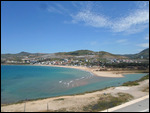
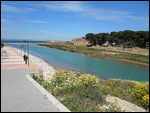
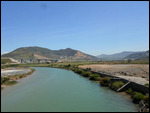
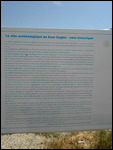
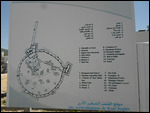
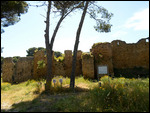


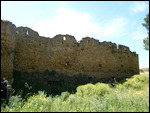
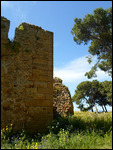
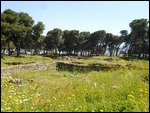
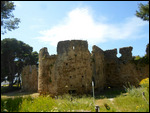
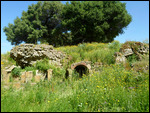
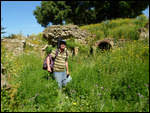
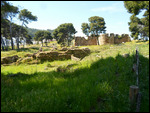
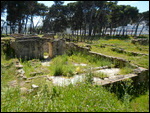
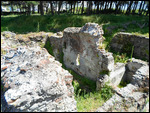
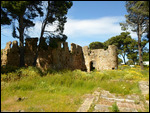
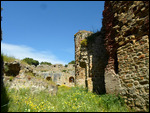
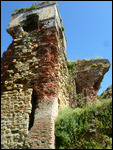
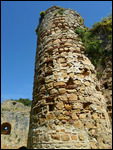
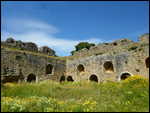
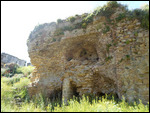
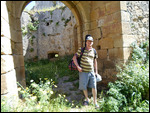
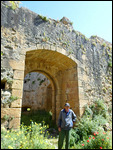
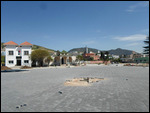
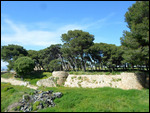
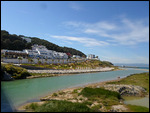
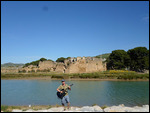
2025-05-23